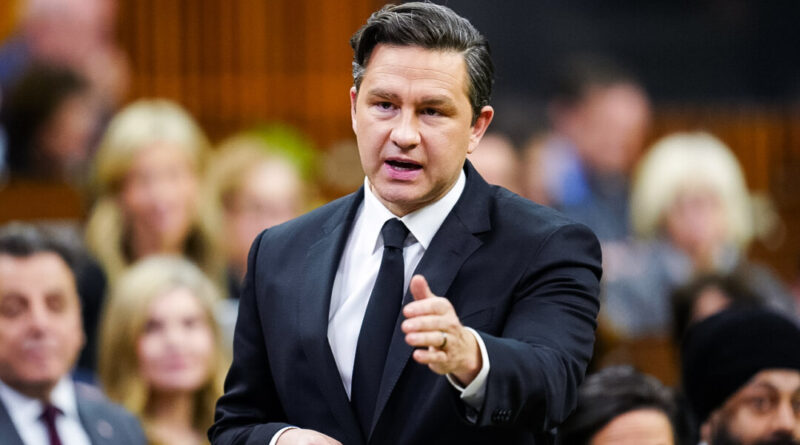Conservatives insist on revealing list of MPs who collaborated with foreign forces- knowingly
According to Conservative Leader Pierre Poilievre, Canadians deserve to know which MPs have been accused in a recent intelligence report of knowingly collaborating with foreign state actors.
“The national security committee has identified members of this house who have deliberately worked for hostile foreign governments,” Mr. Poilievre stated during question period on June 5. “Canadians have the right to know who these individuals are and what information exists about them.”
Public Safety Minister Dominic LeBlanc informed the House of Commons that the government would not disclose the names of suspected MPs involved with foreign actors, citing the inappropriateness of discussing intelligence information publicly.
Instead, he suggested that Mr. Poilievre obtain the necessary security clearance to access the report himself to be better informed on the matter.
“We need transparency, not secrecy,” responded Mr. Poilievre. “This lack of disclosure is what led us into this situation. Canadians deserve the truth to make their own judgments.”
Conservative foreign affairs critic Michael Chong also urged for the release of details from the NSICOP report to the public.
“I can’t stress this enough. Parliamentarians’ allegiance should be to Canada, not to a foreign state,” he added. “My question is straightforward. Will the prime minister disclose the names of these parliamentarians?”
Mr. LeBlanc reiterated that it would be irresponsible to reveal the names of MPs involved in specific intelligence matters.
“It’s inaccurate to suggest that a responsible government concerned with the security of Canada and our democratic institutions would do so,” he stated. “I’m pleased that there are parliamentarians in the House with the necessary security clearance to access all the intelligence behind this critical committee report. I encourage them to review it thoroughly.”
The NSICOP report has sparked intense debate regarding voters’ right to know if their elected MPs have been accused of collaborating with a foreign government.
The committee, comprised of various parliament members, revealed that some MPs began assisting foreign state actors knowingly soon after taking office. The committee members possess security clearances and reviewed about 4,000 documents for their investigation.
Examples cited include MPs having “quid pro quo” relationships with the Chinese regime, where engagement with Beijing led to the regime utilizing its network to favor the member. The report also mentions some MPs proactively sharing confidential information with Indian officials.
Oath of Secrecy
NSICOP chair David McGuinty informed reporters that he and other committee members have taken an oath of secrecy and are unable to disclose the names of MPs mentioned in the report or any classified material.
“The committee’s hands are tied. We can only release as much information as we are permitted to,” stated Mr. McGuinty, a Liberal MP, during a press briefing on June 5.
“The members have always leaned towards transparency rather than secrecy, and we have gone to great lengths in this review to share information without violating the Security of Information Act.”
Mr. McGuinty mentioned that the matter is now in the hands of the RCMP, who will investigate and determine if any charges should be filed.
The RCMP confirmed that investigations are ongoing regarding various forms of foreign interference in Canada.
“The RCMP cannot confirm if there is an active criminal investigation involving any parliamentarian,” stated Sgt. Kim Chamberland in a statement to The Epoch Times.
“The RCMP has publicly addressed the issue of foreign interference and believes that more public awareness is necessary. However, we must exercise caution regarding public statements related to ongoing investigations.”
Deputy Prime Minister Chrystia Freeland announced on June 5 that the Liberal Party would conduct an internal follow-up review. She did not provide specifics on the nature of the review.
“Certain countries seek to undermine our democracy, and we cannot allow that to happen,” she stated. “It’s a serious problem that MPs in the House of Commons are involved in such activities.”
She did not mention whether any accused Liberal MPs would be allowed to remain in the caucus.
The government has taken steps to address foreign interference in Canada through Bill C-70, aimed at reforming national security laws.
The Tories have expressed concerns that proposed measures, such as the foreign influence registry, may not be established before the federal election in October 2025.
Noé Chartier contributed to this report.





